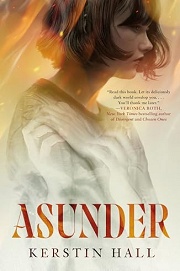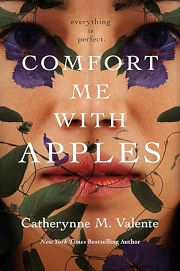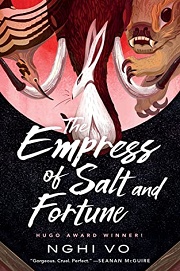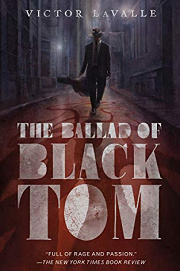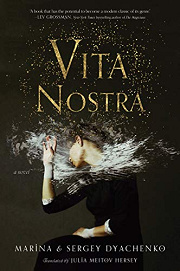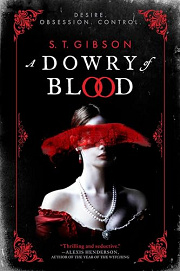Share your thoughts in a quick Shelf Talk!
Asunder by Kerstin Hall
At the edge of a fractured realm where gods keep their own counsel and promises exact a terrible price, a determined outsider is drawn into a web of uneasy alliances and ancient debts. Secrets fester, borders blur, and every choice cuts deeper than the last. Asunder is a lush, unsettling fantasy that blends knife-sharp intrigue with otherworldly wonder—perfect for readers who crave haunting atmospheres, impossible bargains, and the slow unspooling of a dangerous truth.
Have you read this book? Share what you liked (or didn’t), and we’ll use your answers to recommend your next favorite read!
Love Asunder but not sure what to read next?
These picks are popular with readers who enjoyed this book. Complete a quick Shelf Talk to get recommendations made just for you! Warning: possible spoilers for Asunder below.
In Asunder, did you enjoy ...
... claustrophobic domestic rules and fairy‑tale unease?
Comfort Me With Apples by Catherynne M. Valente
If the thing that hooked you in Asunder was the way a seemingly perfect household is girded by uncanny rules and an escalating sense that the contract you’re living under is wrong, Valente’s novella will scratch that itch. You move through Sophia’s manicured life the way you moved through that noble house’s proscribed halls—catalogs of forbidden rooms, neighbors who smile too much, a husband whose love feels like a covenant with fine print. As the cracks in the rules widen, the story delivers the same shiver you felt when ritual and law in Asunder revealed their true cost.
... quiet, artifact‑driven testimony and palace intrigue?
Empress of Salt and Fortune by Nghi Vo
You enjoyed how Asunder unfurled an intimate history through objects and whispered conversations—ledgers, relics, and rooms that remembered more than their keepers admitted. In Vo’s novella, the cleric Chih listens as Rabbit unspools an empire’s upheaval through teacups, garments, and keepsakes, each item a key that opens another locked chamber of the past. The political maneuvering is personal, the betrayals precise, and the emotional turn—like that late revelation in Asunder about who truly benefits from the ritual—lands with a knife‑clean click.
... a protagonist forced into morally gray bargains to survive oppressive power?
The Ballad Of Black Tom by Victor LaValle
If what lingered from Asunder was following a lead who makes compromises under a system designed to crush them—and watching those compromises curdle into something darker—LaValle’s novella hits the same nerve. Tommy Tester navigates predatory patrons, coded laws, and occult obligations the way the central figure in Asunder navigates ritual authority and its impossible demands. When both finally push back, their defiance carries the same terrible clarity: the price of survival isn’t clean, and power never comes without a blood‑inked clause.
... surreal, transformative schooling that rewrites the self?
Vita Nostra by Marina Dyachenko and Sergey Dyachenko
The metaphysical logic of Asunder—where rites and words change bodies and bonds—finds a chilling mirror in Vita Nostra. Sasha is drawn into a school whose assignments are more like ontological traps, reshaping her language, her will, even her being, much as the ceremonial mandates in Asunder reshape identity and obligation. If you relished the way reality buckled under rule‑sets you only gradually understood, the Dyachenkos’ escalating, dream‑sharp exercises will leave you with the same breathless, dreadful awe.
... an intimate, confessional reckoning with a predatory relationship?
A Dowry of Blood by S.T. Gibson
Beyond the magic and ritual, Asunder is a confession about complicity: loving something that harms you, and narrating your way toward a choice. Constanta’s letters to the vampire who remade her echo the voice you heard when Asunder peeled back the romance of duty to show bruises beneath—jealousies, isolation, rules enforced as love. If you were moved by that final, hard‑won act of self‑definition in Asunder, this slow, lyrical unbinding will feel like a kindred victory.
Unlock your personalized book recommendations! Just take a quick Shelf Talk for Asunder by Kerstin Hall. It’s only a few questions and takes less than a minute.
